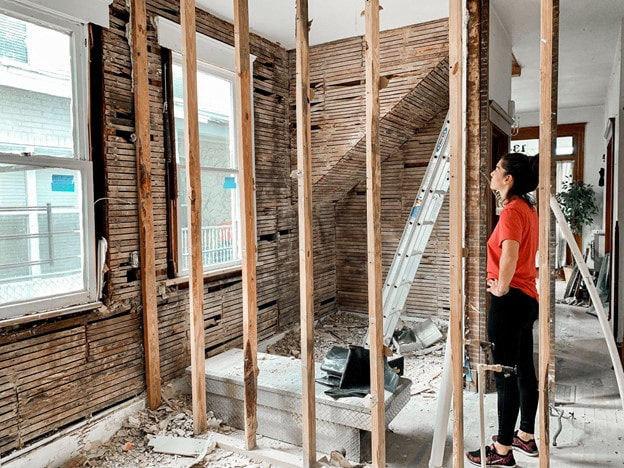Prince Hill Insurance Agency Blog |
|
For a first-time buyer, sometimes the most logical (and viable) option is to purchase a ‘fixer-upper’ and carry out the repairs yourself. A property in need of work is likely to cost less, deter competition and can often result in a more straightforward transaction. If you’re the DIY type and you’re looking to buy, here’s what to consider first. What to Look For Before you begin your search, it’s crucial that you understand your own limitations and what qualifies as ‘fixable’. Planning ahead now will protect you from heartache, headaches and costly mistakes - if the issues are structural, for example, serious renovation work will be required just to ensure your own safety. To identify any existing damage or any work required to ensure the house is functional, it’s often worth getting a home inspection. This may cost a few hundred dollars but should be considered a compulsory step before buying any home, let alone a fixer-upper. Cosmetic work will often prove to be time and cost cheap. Easy fixes often include door replacements, repainting, fixing windows, refinishing floors or installing lights. Towards the more significant end of the spectrum, you have reroofing, kitchen/bathroom remodels, plumbing, electricals or shoring up foundations. It’s important, once you know the issues with the property, to calculate whether they can be solved on your existing budget. Buying Process There are a few important bureaucratic conditions that you’ll need to consider before purchasing a fixer-upper. Depending on the location of the property, you may need a permit even to carry out basic renovations such as structural work, window installation etc. Make sure that it’s possible, not only to purchase the home but also to make your desired changes. There are also some great fixer-upper loan options provided by the Federal Housing Administration (FHA) that can help finance a purchase. Be sure to explore these options before proceeding with an offer. It’s also possible to price the cost of renovations and factor these into your offer. An extra 10-20% is reasonable to cover any unforeseen problems. This does not count towards a property sold ‘as-is’. This means the seller will not make repairs or offer credits for potential defects. Remember, if you are purchasing an as-is property, you forfeit many of the typical inspections required for common real estate transactions - this can make a purchase risky. After You’ve Purchased Depending on your intentions for the home, whether you want it to be turned into a rental or kept for personal use, you may want to prioritize durability, safety and cost-effective value. A good place to start is with floors - you may need to replace damaged portions but you can refinish hardwoods by sanding. If you want to open up more space in the home by knocking down walls, now is the right time. For integrated systems such as plumbing or electricity, you’ll need a trained professional. There is often a huge amount of work from the largest projects (i.e. reroofing) to the smallest details (insulation, new bulbs) - the important thing is to research thoroughly before you undertake any new tasks. In some circumstances, a great purchase opportunity can quickly become a living nightmare. For this reason, it’s especially important to purchase home insurance. A good insurance provider can provide you with a quote based on your building information and policy requirements. Insurance is crucial for peace of mind and as protection when you’ve bought an unpredictable property. However you shake it, purchasing a fixer-upper represents risk. It can lead to an excellent investment or a lot of stress and overspending. That’s why, to prevent disaster, it’s always worth speaking with the experts first and taking the time to read up on all possible eventualities. Prince Hill Insurance is dedicated to protecting your financial future. Let us show you how to save money, whilst improving your insurance protection. Visit us today, at: www.princehillinsurance.com Image by Pexels
0 Comments
Leave a Reply. |
Brenna MeadeBrenna Meade is the IT Manager at Prince Hill Insurance and handles all things technical. She will be managing this blog. Natalie JonesNatalie Jones often writes guest blogs for Prince Hill Insurance. She and her husband run Homeownerbliss, a great small business and blog! Archives
July 2023
Categories
All
|



 RSS Feed
RSS Feed